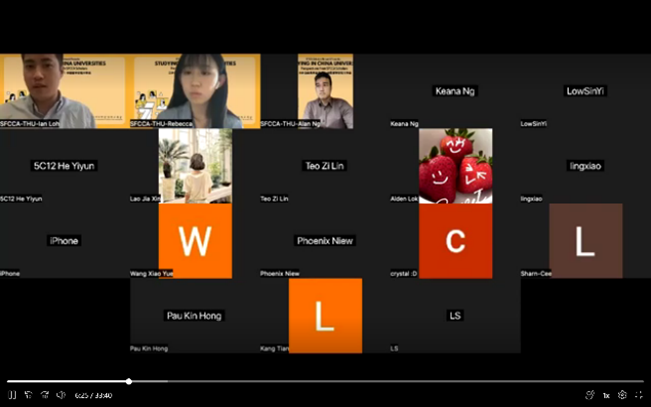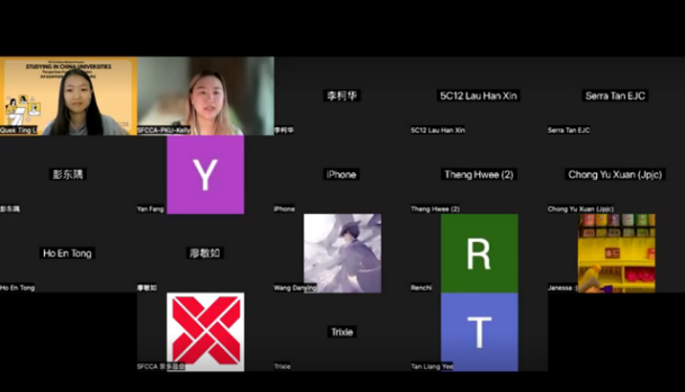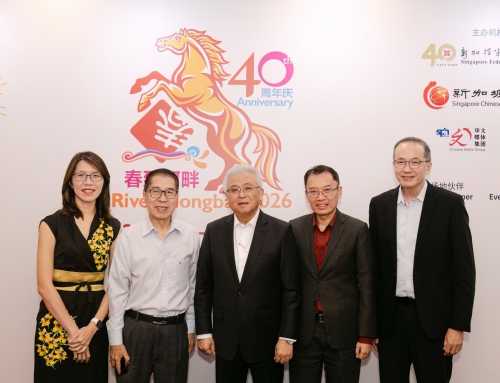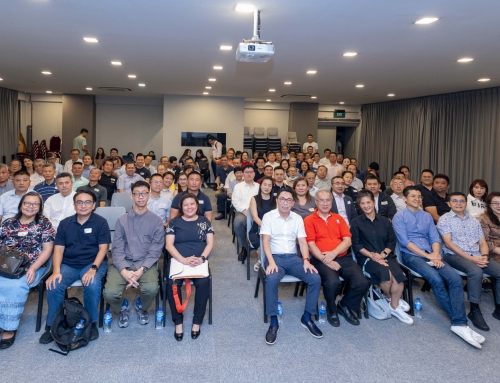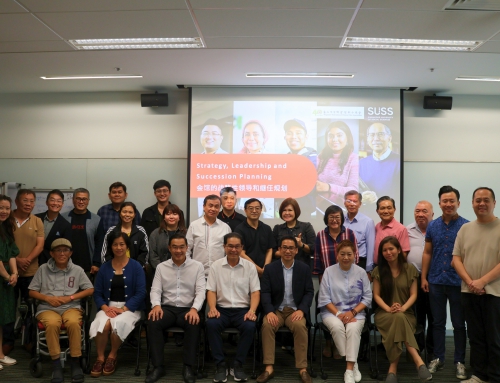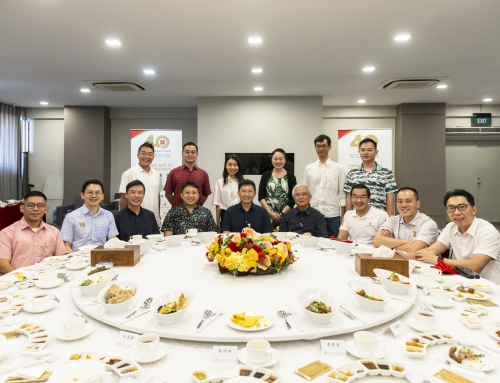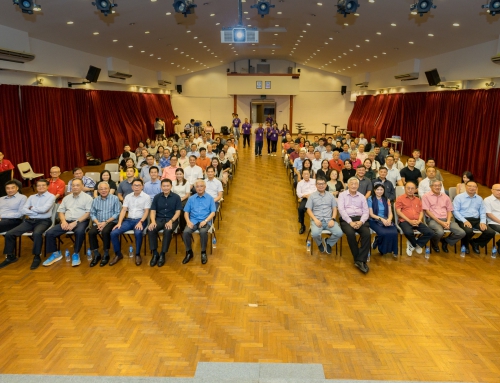The SFCCA Scholars Network (SSN) held an online Zoom session titled ” Studying in China– Perspectives from SFCCA Scholars” on Saturday, 13 May 2023 at 3pm. More than 60 students participated in the Zoom session, with a sign-up to participation rate of nearly 100%. Over 900 people watched the Singapore Eye simulcast, which shows the students’ interest and enthusiasm in studying in China.
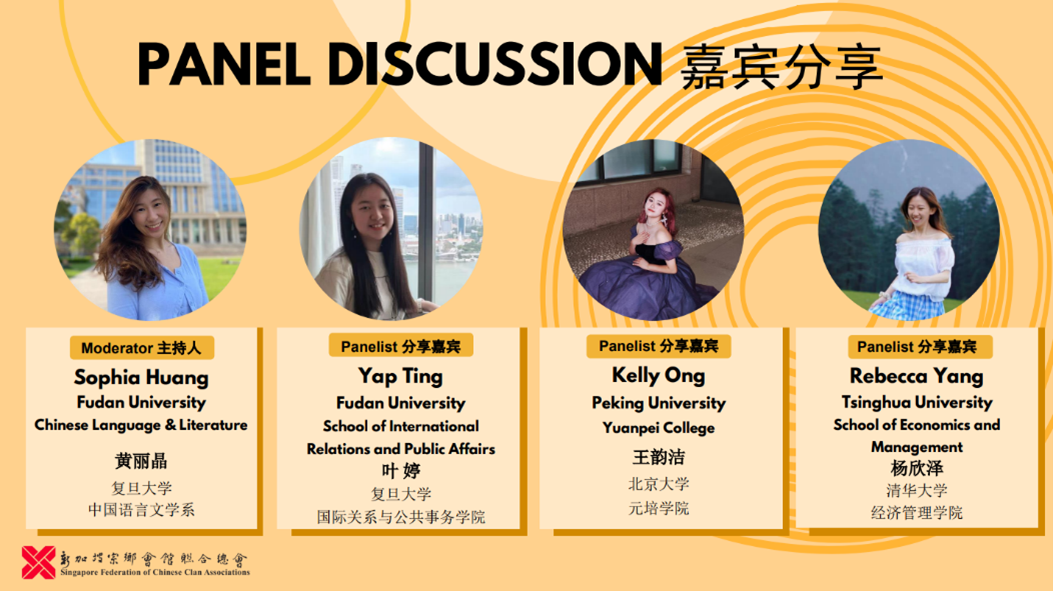
Scholarship recipients Yap Ting (2nd left), Kelly Ong (2nd right) and Rebecca Yang(1st right) were invited to share their experiences in China. Scholarship recipient Sophia Huang (1st left) moderated the event.
The sharing session featured the recipients of the SFCCA Scholarship who studied at Peking University, Tsinghua University and Fudan University to share their experiences of studying in China and why they chose to apply for the SFCCA Scholarship. The sharing session hopes to give Singapore Junior College students a first-hand account of what it is like to study in a Chinese university, and to help students who wish to study in China understand the unique opportunities and benefits that the SFCCA Scholarship offers. In addition, this year’s SFCCA scholar sharing session also invited graduated scholars to participate in break-out sessions of each university, allowing participants to gain a deeper understanding of the distinctive features and the possible career paths after graduation.
Sophia Huang, a year four student from the Department of Chinese Language and Literature at Fudan University, served as the moderator for the sharing session and gave a comprehensive introduction to the SFCCA Scholarship, including the diversified paths of the scholars. She revealed that there are currently 53 students who have benefited from the scholarship, and more than 30 of them have successfully graduated and have achieved outstanding results in different fields.
In the sharing session of the scholars experience in China, the three panelists shared with the students how they became SFCCA scholars, why they chose the university that they are studying in, what they should pay attention to when choosing their majors and how living in China is like.
Is there a requirement for Chinese language proficiency to study in China? How is the stress level like?
The language barrier is a concern for many students. Yap Ting, a second-year student at Fudan University’s School of International Relations and Public Affairs, believes that a high level of Chinese language proficiency is not required as Shanghai is a very international city, and Chinese language proficiency of daily communication would be enough. In addition, many of the literature and courses in the International Politics program are in English, so she reassured her fellow juniors that they need not worry too much.
Rebecca Yang, a third-year student at Tsinghua University’s School of Economics and Management, suggested that if students want to maximize their experience of living and studying in China, they should make an effort to eliminate the language barrier and communicate with Chinese locals in Mandarin, which will also help them in their future job search.
Kelly Ong, a second-year student majoring in Chinese at Yuanpei College of Peking University, expressed her opinion on the discussion of “involution”. She believes that international students in Chinese department do not deliberately compare themselves with local Chinese students, but rather make sure that they do their best in every aspect. If the students take notes, do their homework and prepare for the exams, then they are guaranteed to have a good grade.
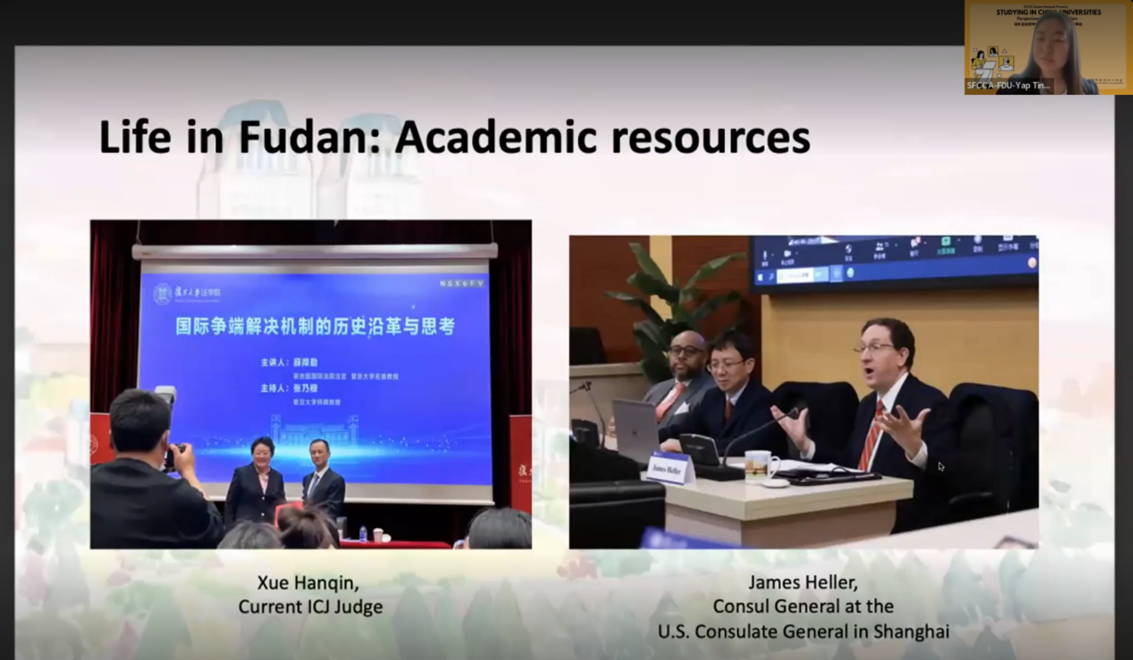
Yap Ting Shares Academic Resources unique to Fudan’s International Relations Program
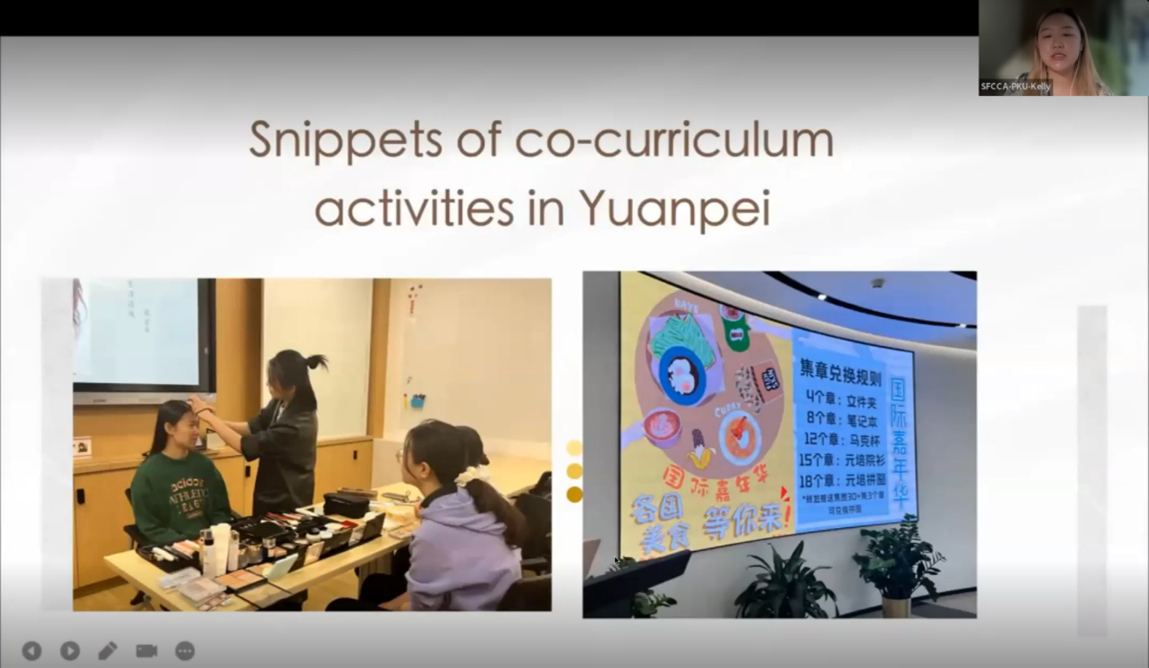
Kelly Ong shares the extracurricular activities of Yuanpei College, Peking University
Is there a chance that one might not make friends?
Responding to the concerns on social life, Yap Ting shared her experience of participating in the college’s Global Governance Design Competition, where most of the students in-charge of organising the competition were local Chinese students. She believes that getting involved in club activities is one way to make friends outside of the classroom. The Chinese students were actually very friendly, but they were just shy when communicating with international students, so Yap Ting suggested that Singaporean students should take the initiative to make the first move, believing that they would reap wonderful friendships.
Rebecca added that finding international student organizations on campus is also a great opportunity to meet both local Chinese and international students, as those who choose to get involved in these organizations have already express their desire to get to know each other.
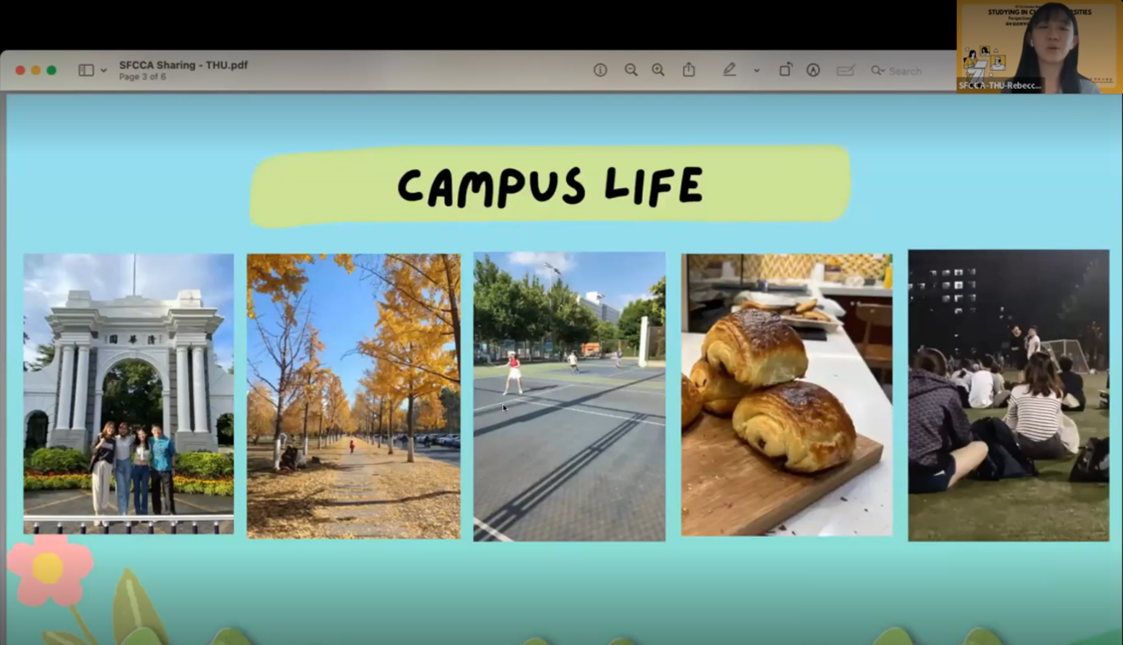
Rebecca shares her campus life at Tsinghua University
What kind of traits should one have to get the SFCCA Scholarship?
Sophia answered that the basic traits that SFCCA expects to see are in fact the same as other scholarships, SFCCA takes into account grades, moral values, cultural literacy and so on. The biggest difference includes that SFCCA wants to cultivate bilingual talents with a bicultural perspective and ability to communicate and build bridges across cultures. In addition, SFCCA hopes to find scholars who are willing to give back to the Chinese community in Singapore, and through the SFCCA internship, scholars can also gain a better understanding of the local clan organisations in Singapore.
This year’s newly-added break-out session was well received, as students were able to freely enter and exit any of the online meeting rooms representing the three universities, and discuss in-depth university-specific questions with SFCCA scholars from different majors.
Highlights from the online breakout rooms
Chen Zhi Ting Sophia, a graduate of Fudan University’s History Department, is currently pursuing a master’s degree in Tsinghua University’s History Department and plans to pursue her PhD in the United States. As the first Singaporean student in the History Department of Fudan University, she mentioned the difference between living and studying in Shanghai and Beijing during the breakout session. Zhi Ting also shared her experience of applying for graduate schools overseas with a Chinese university degree.
Finally, finding a job back in Singapore is a great concern for everyone and was brought up many times in the break-out rooms. Loh Hong Sheng, who graduated from Tsinghua University with a degree in Finance and Economics and is currently working for Swiss Digital Bank, responded that the most important thing is to find an employer who appreciates the experience of studying in China, as studying in China means understanding and being interested in the Chinese capital market and the society as a whole, only those jobs that fit this expertise are considered suitable.
(Left: Tsinghua University, center: Peking University, right: Fudan University)
Application for the SFCCA Scholarship is currently open. For more information about the SFCCA Scholarship, please click here.
For those who would like to know more about our scholars’ unique experiences studying in China, please enjoy the video “SNN Features | Studying in China 101” presented by the SFCCA Scholars Network (SSN). https://youtube.com/watch?v=B73aVlx-P9M&feature=shares.

